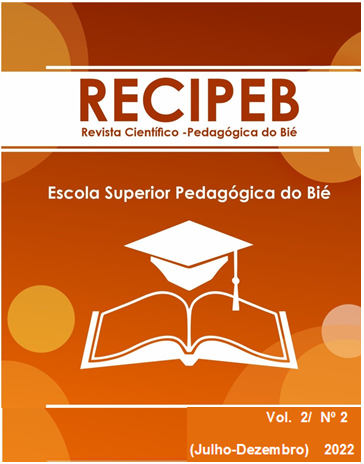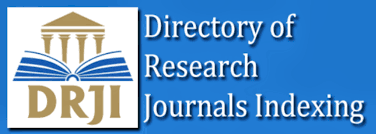Development of computational thinking from the teaching-learning process of Discrete Mathematics: a systematic literature review.
Keywords:
Computational Thinking, Algorithmization, Logical Thinking, Discrete MathematicsAbstract
Discrete Mathematics has become the basis of a good part of human knowledge today, fundamental for computer science, one of the sciences whose mathematical foundation is very strong, combining algorithmic thinking and mathematical thinking, in a symbiosis that is recognized as Computational Thinking in the literature today. After frequent observations of the Teaching-Learning Program, a documentary analysis of the Teaching-Methodological work in terms of analytical programs, preparation of subjects and control reports to classes in the study during the 2019-2020 academic year, and by means of a survey carried out to the Discrete Mathematics teachers, as well as the systematization of the professional experience of the author and other teachers who teach the Discrete Mathematics subject, it was possible to identify shortcomings in the development of Computational Thinking in the Discrete Mathematics subject. The objective of this work: to describe the current trends in the development of Computational Thinking from Discrete Mathematics at the Informatics Sciences University. In the work, the theoretical references that support Computational Thinking from the systemic-structural-functional approach are analyzed and contextualized, on those basis important investigations related to Computational Thinking and its application in different educational subsystems could be verified.
References
Adler, R. F., & Kim, H. (2017). Enhancing future K-8 teachers’ computational thinking skills through modeling and simulations. Disponível em https://link.springer.com/article/10.1007/s10639-017-9675-1. Acesso em Agosto, 2022.
Castellanos, Y., & Badía, V. (2015). Gestión del conocimiento en el proceso de enseñanza aprendizaje de la Matemática Discreta. Universidad de La Habana.
Chatterjee, K., & Scheiner, J. (2015). Understanding chang ing travel behaviour over the life course: Contributions from biograp hical re- search. In: 14th International Conference on Travel Behaviour Re- search. Disponível em: http://eprints.uwe.ac.uk/28177/11/Chatterjee and Scheiner IATBR resource paper version 161015.pdf. Acesso em Junho, 2022.
Durak, H. Y., & Saritepeci, M. (2017). Analysis of the relation between computational thinking skills and various variables with the structural equation model. Computers & Education. Disponível em: https://doi.org/10.1016/j.compedu.2017.09.004. Acesso em Junho, 2022.
González Hernández, W. (2004). Metodología para contribuir al desarrollo de la creatividad en estudiantes de la educación superior a través de la enseñanza de la programación. Universidad Pedagógica “Enrique José Varona”. , Academia de Ciencias de Cuba.
Kalelioğlu, F., Gülbahar, Y., & Kukul, V. (2016). A Framework for Computational Thinking Based on a Systematic Research Review. Baltic J. Modern Computing, 4(3), 583–596.
Koch, T., & Denike, K. (2009). Crediting his critics’ concerns: Remaking John Snow's map of Broad Street cholera, 1854. Social Science and Medicine, 69(8), 1246–1251. Disponível em: https://doi.org/10.1016/j.socscimed.2009.07.046. Acesso: Julho, 2022.
Llorens Largo, F., García Peñalvo, F. J., Molero Prieto, X., & VendrellL Vidal, E. (2017). La enseñanza de la informática, la programación y el pensamiento computacional en los estudios preuniversitarios. Education in the Knowledge Society (EKS), 18(2), 7. Disponível em: https://doi.org/10.14201/eks2017182717
Maris, S. (2019). Pensamiento computacional: por qué incluirlo en el proceso de aprendizaje. Net-Learning. Disponível em: https://www.net-learning.com.ar/blog/herramientas/pensamiento-computacional-por-que-incluirlo-en-el-proceso-de-aprendizaje.html
Pareja Lora, (2020) Antonio Educación del pensamiento computacional para alumnos de un posgrado semipresencial en Humanidades: experiencias con clase invertida, Universidad Complutense de Madrid, Madrid, Universidad Nacional de Educación a Distancia, España ORCID: https://orcid.org/0000-0001-5804-4119 Ene. –Abr. 2020, Vol. 8, N° 1, e439, Disponível em: http://revistas.usil.edu.pe/index.php/pyr/article/view/439. Acesso em Junho,2022.
Pei, C. (Yu), Weintrop, D., & Wilensky, U. (2018). Cultivating Computational Thinking Practices and Mathematical Habits of Mind in Lattice Land. Mathematical Thinking and Learning, 20(1), 75–89. Disponível em: https://doi.org/10.1080/10986065.2018.1403543. Acesso em Julho, 2022.
Rodríguez, S. (2018). ¿Qué es el pensamiento computacional? Disponível em : Blog Edikeus.com. https://edikeus.com/que-es-el-pensamiento-computacional/ Acesso em Fevereiro, 2022.
Rojas-lópez, A. (2020). Evaluación de habilidades del pensamiento computacional para predecir el aprendizaje y retención de estudiantes en la asignatura de programación de computadoras en educación superior. Revista de Educación a Distancia. Núm. 63, Vol. 20. Artíc. 4, 30-04-2020, 20.
Román-González, M., Pérez-González, J. C., & Jiménez-Fernández, C. (2015). Test de Pensamiento computacional: diseño y psicometría general. La Sociedad Del Aprendizaje. III Congreso Internacional Sobre Aprendizaje, Innovación Y Competitividad (CINAIC 2015), October, 1–6. Disponível em https://doi.org/10.13140/RG.2.1.3056.5521. Acesso em Maio, 2022.
Rosen, K. H. (2004). Matemática Discreta y sus Aplicaciones. Edición 5, Editor McGraw-Hill, 2004 ISBN 8448140737, 9788448140731.
Vélez Langs, Oswaldo, (2018) “El Porqué del Pensamiento computacional en las Carreras de Ingeniería” Vol. 6 Núm. 1 (2018): Revista Ingeniería e Innovación volumen 6(1).
Downloads
Published
How to Cite
Issue
Section
License
Copyright (c) 2023 Leandro Daniel Pérez Tamayo, Ivonne Burguet Lago, Walfredo González Hernández, Dunia Reyes Abreu

This work is licensed under a Creative Commons Attribution-NonCommercial-ShareAlike 4.0 International License.
















